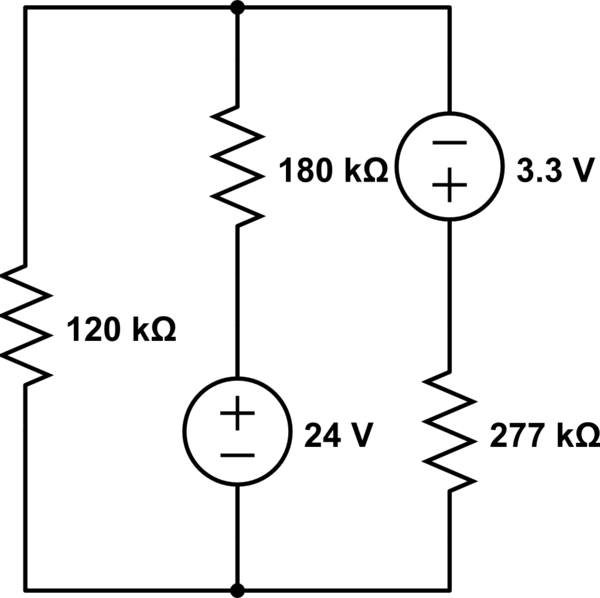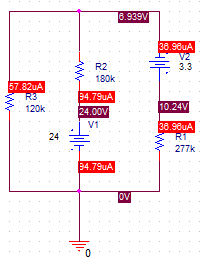I am trying to determine the mesh currents in the following circuit. I consider the mesh currents (from left mesh to right mesh) to be called I1 and I2.

simulate this circuit – Schematic created using CircuitLab
Considering the two meshes present in the circuit, I obtain the following system of equations:
Mesh 1
(400k)I1 - (180k)I2 = -24
Mesh 2
(-180k)I1 + (457k)I2 = 27.3
Solving the above system of equations on my own yields the results:
I1 = 40.25uA and I2 = -43.88uA
I've double checked and everything seems okay in terms of mesh equation setup. Then I've verified my results with a simultaneous equation solver. However, I've simulated this circuit and the results of my simulation do not agree with the system of equations... Here are the results of my simulation, what is going on?
In case you cannot see the image, the results of the simulation are...
I1 = 57.82uA and I2 = 36.96uA

